What does science tell us about the importance of a good bath to a bird?
The answer: surprisingly little!
A study published in 2009 stated it plainly: “Birds of most species regularly bathe in water, but the function of this behavior is unknown” 1.
This post is about the cool green science of bird baths: what we know and intriguing areas of inquiry for future research.
Rub-a-Dub-Dub, Many Birds in the Tub
Despite the lack of knowledge about the function and importance of baths to birds, we all know that birds (like the rest of us) love having water around for bathing and drinking.
When working with migrant birds in the Yucatan Peninsula, I first began to understand how seriously birds take the business of bathing. We were studying warblers that were typically territorial. These birds frequently engaged in threat postures and even in fights to enforce the boundaries between their exclusive home ranges at our mangrove study sites.
But at a communal bird bath, there was a nightly truce.
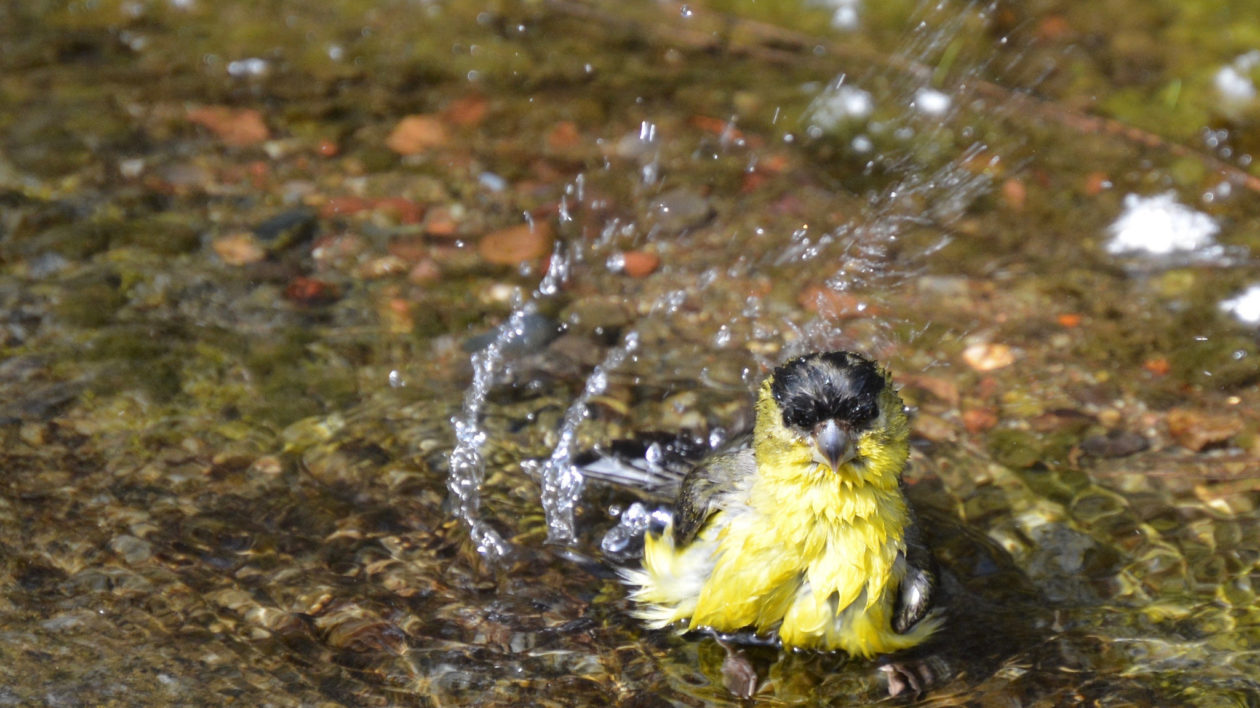
Each evening at dusk, in a special spot in the mangroves where a freshwater spring bubbled up from the ground, numerous American redstarts, northern parulas, magnolia warblers, common yellowthroats and yellow warblers took turns bathing.
One by one, they shared this little oasis before going to roost for the night.
Seeing territorial warblers calmly taking turns for a bath tells us that for a bird, having access to water for bathing is worth checking one’s combative tendencies – at least for a few minutes.
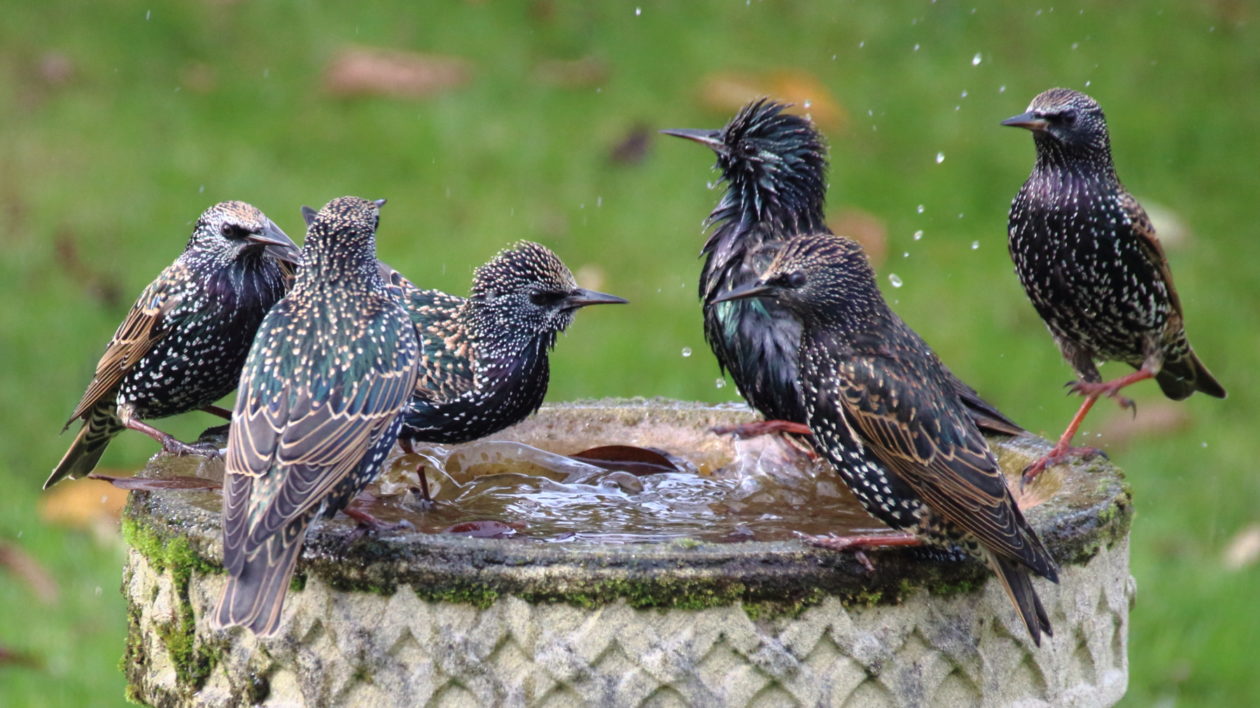
Why Birds Take Baths
So, what’s so important about a bath?
The number of relevant scientific articles can be counted on one hand. There are very basic descriptions of the mechanics of bird bathing in North American2 and Australian birds3, an experimental examination of wetting and drying of disembodied feathers4, and a recent pair of studies that experimentally deprived captive starlings of bath water 5,1.
Although the functions of bird bathing aren’t clearly known at this point, these studies suggest that bathing plays an important role in feather maintenance.
Feathers are a bird’s lifeline: they insulate, waterproof and, of course, provide the power of flight.
Feathers get replaced once or twice a year. In the interim, they need to be kept in good condition. The sun, feather-munching mites, bacteria and gradual wear take a toll on feathers. A set of year-old flight feathers look like they’ve been through the ringer: they are frayed and dull.
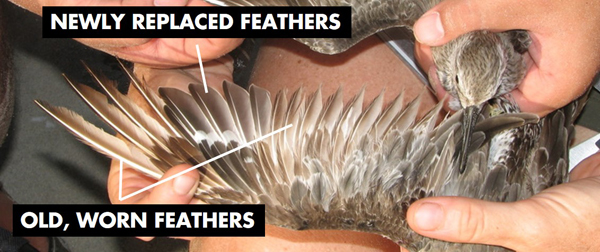
A good bath may keep those precious feathers in the best condition possible for as long as possible.
Two recent studies on captive starlings have progressed our understanding a bit further. In one paper, Brilot and colleagues hypothesized that depriving a bird of a bath would result in more disheveled feathers and translate into poorer flight performance.
They tested a group of freshly-bathed starlings and a group that had been deprived of a bath for three hours prior to the experiment. The starlings deprived of a bath were clumsier when flying through an obstacle course made of vertically-hung strings, bumping into more strings as they flew.
In their second paper on starlings, the research team examined whether the bath-deprived starlings knew they were clumsier. They did this by presenting bathed and unbathed groups of birds with recordings of starling predator alarm calls – and delicious meal worms – at the same time.
The experiment indicated that birds with access to bath water were more willing to let their guard down and feed, despite the recorded call signaling the presence of a predator. The authors suggest that the unbathed birds were more cautious because they were aware that their ability to escape was impaired.
This work tells us that, beyond preserving feathers over the long term, bathing even makes a bird a more agile flier and more adept at escaping predators in the short term.
These studies are helpful, but the function of bathing still eludes us.
How does it make these birds better fliers? Does it help realign the tiny barbs that hold feathers together? Does it help distribute protective oils? Does it improve feather performance in some other way?
This all leaves me wondering about those birds in the Yucatan. Our research was focused on revealing differences in habitat quality among individuals, mainly by measuring the food resources of the birds. We reasoned that more food equaled birds in better condition with a better chance of survival.
But maybe we were ignoring another important aspect of habitat quality – access to bathing water. We see from the starling work that being deprived of a bath could make an unbathed bird easier to catch, so baths might play a role in survival too.
Until we get an answer from science, we will need to rely on common sense and keep those backyard bird baths full.
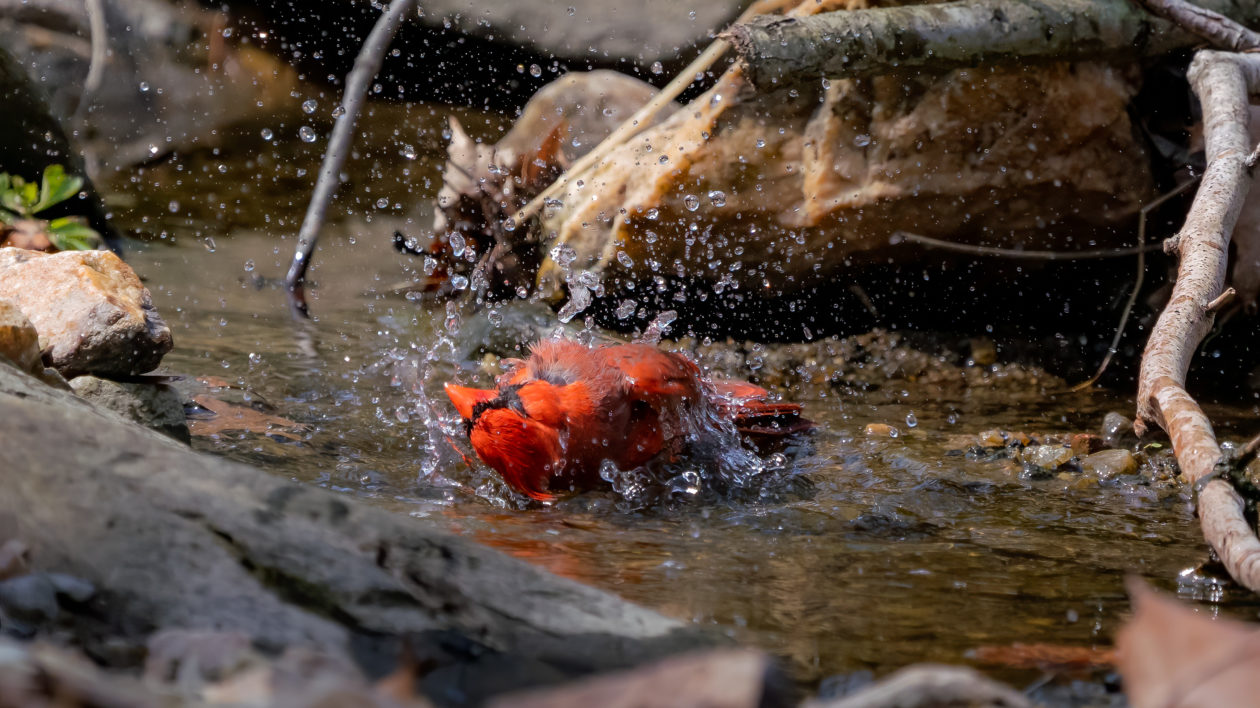
Preparing Your Backyard Bird Bath
Many of us with bird feeders also have a bird bath to go along with it. Even in the coldest months of the year, I’ve found that birds are eager to take baths.
I recently poured a warm tea kettle of water into my frozen bird bath and there was an instant scrum as the cardinals and white-throated sparrows jockeyed for position around the bath.
A more sophisticated approach to maintaining a bird bath in winter is to use a bird bath heater.
When warmer times come around, a water mister can enhance the backyard bird bathing experience.
Misters keep water fresh and brings a lot more attention to the bird bath. They are a great bird attractor during the spring and summer when people typically aren’t feeding birds.
Although it would be nice to know the exact functions of bird bathing, a lack of scientific knowledge won’t ever get in the way of a good bath.
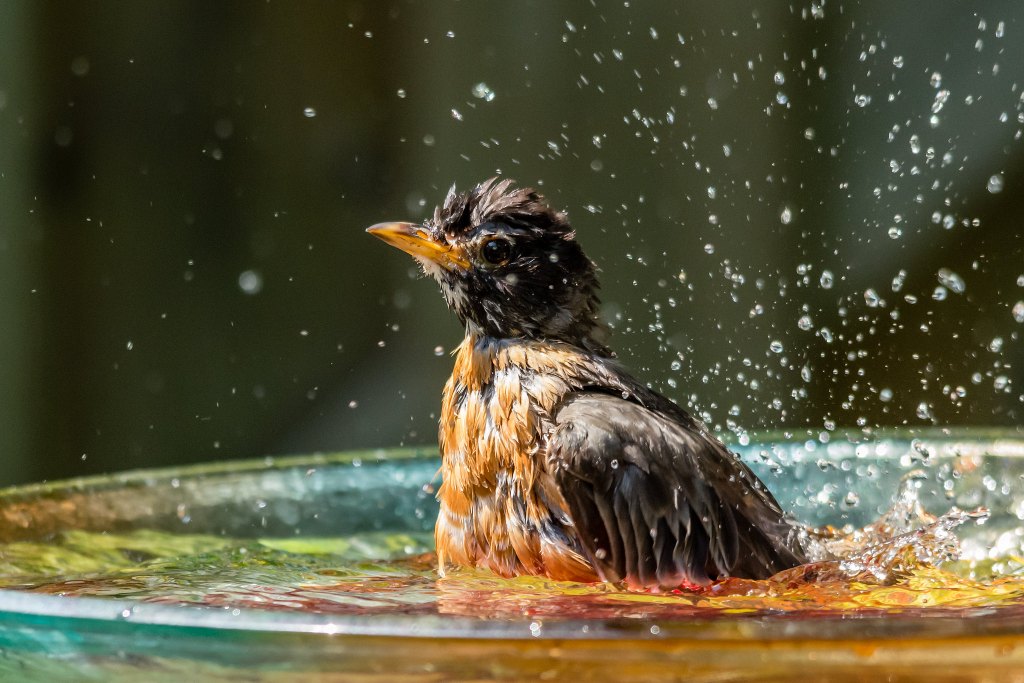

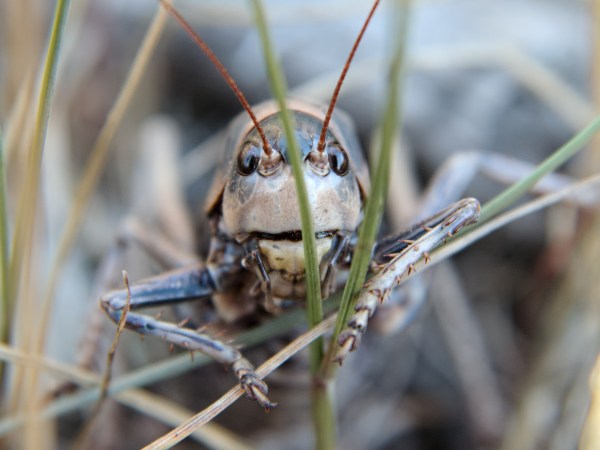
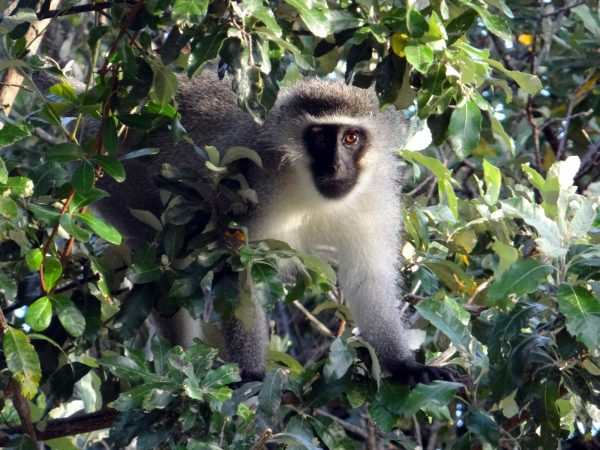
I know from my own personal hygiene that one of the most important aspects of bathing is simply to remove the days dirt. Spend a day outside and dirt is unavoidable, I can see its grit on my skin. I imagine the same is true of birds. All the little particles of dirt in and between the feathers must be like sandpaper, impeding the feather sliding against each other, and wearing them out faster. In I have no doubt the bath for the same reason I do. I’m just plain dirty and need a bath !!!
I live in Tewantin, Queensland and we get a lot of Indian Mynas. I understand they are from the clever starling group. What is significant for me is their ability to actually sit on the rim of plastic bowl in the garden and somersault to get in. The bowl is about 30 cm in diameter and about 12 cm deep. Butcherbirds jump in from the rim, but the antics of the mynas are amazing and so funny to watch. As far as the reason for bathing is concerned, I figure it’s because mynas get driven mad by mites which makes them so aggressive at times. I say this because in summer when they are particularly active here, I see how they sit on the fence nearby and peck away between their feathers. They don’t seem to be pruning, rather pecking. I change the water in the bowl at least every three days and clean out the detritus from the base every month or so.
You are so on target! I placed a stone bird bath in our yard and was amazed how the birds love taking a bath. I have even named the birds seeing the same birds come daily. They are so funny first their tail splish splash then their head last their wings flap the water all around. I totally enjoy watching them enjoy their bath.